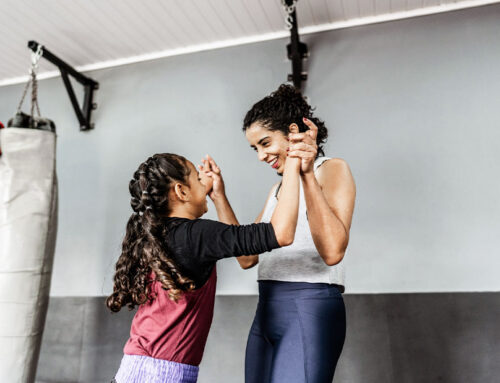Mental Health in Young Athletes
A recent study of 17,000 adolescent athletes in the USA found that levels of anxiety and depression were higher than before the Covid restrictions and that overall quality of life (QOL) was lower. This was despite the athletes resuming their sporting and exercise activities. Coaches and teachers should be aware that even if the young athlete in front of them seems physically competent they might be fragile mentally.
If coaches focus on the Xs and Os without looking after the Janes and the Joes, then they might experience a dropout from their teams and squads.
This article will look at ways of introducing measures into their coaching sessions that help young athletes improve their mental health and well-being and also a reminder of how to identify potential problems.
Coach the person, not the athlete
This is a coaching mantra that is more important than ever. The idea that a young athlete is a number on a spreadsheet or a pawn in a grand game of coach ego chess is out of date. Taking the person in front of you for granted or treating them purely as an object to achieve titles or medals is likely to lead to them either underperforming or dropping out of the sport altogether.
One of the reasons that many young people prefer video games to real games is that they are able to play with their friends without an adult telling them what to do.
Having empathy with the young athlete does not mean that you are ‘soft’ (and coaches who think this might question why they are coaching in the first place) but that you care.
Remember that Teddy Roosevelt said,
“People don’t care how much you know until they know how much you care.”
Simple ways to show that you care are:
· Greeting every athlete on arrival or, if a big group all arrive at the same time, greeting them as a group and then speaking to every individual at some point in every session.
· ‘Hello’ and ‘how are you?’ are two of the most effective coaching phrases you can use and they are free. Use them.
· Ask them something that is non-sport related. ‘How is school?’ ‘Did you have a good weekend?’ ‘Do you have any plans for the holidays?’ This is a better first interaction with an athlete than, ‘you need to catch the ball with your hands,’ ‘keep your chest up,’ or any other technical points.
Also, be mindful of your body language and where you stand. If you are always standing in the same corner, talking to the same group or individual, then the others will notice. If you are always looking at your laptop or tablet or talking on your phone, then the young athletes will realize that you are not paying attention to them.
If the young athletes are made to feel welcome and that you are interested in their well-being as well as their sporting performance, then they are encouraged to stick with the sessions and try to improve.
Warning signs
As well as adopting (or continuing) best practice ideas as suggested above, coaches should be aware of potential signs of anxiety and depression in young athletes so that they can initiate a discussion with parents and signpost them to professionals who can help.
Anxiety presents itself differently from person to person. There might be some obvious physical signs such as reddening of the skin, shaking, and sweating: but these might be hard to distinguish from normal signs of vigorous exercise. Other signs include ‘stomach ache,’ trouble sleeping, and restlessness. If the coach has regular chats with the young athlete (see above) then a change in their demeanor will be easier to spot.
It is unlikely that a young athlete will be able to verbally express, ‘I feel anxious.’ So asking, ‘are you anxious about something?’ is unhelpful.
Signs that might indicate a young athlete is depressed include:
- feeling tired or grumpy
- lacking self-confidence or being more self-critical
- being tearful
- feeling sad, miserable or lonely for a long time
- have trouble sleeping or sleeping more than usual.
- withdrawing from usual activities with friends
- eating less or eating more than usual.
- self-harming
It takes a medical professional to diagnose depression. We can not diagnose it as coaches but we can help the young athlete by having a discussion with parents if we see some of the warning signs above.
They are not indicators that the young athlete ‘lacks commitment’ or ‘focus.’ We should not add misery to their experience by telling them to work harder or to ‘snap out of it.’ If the young athlete feels anxious or is exhibiting signs of depression and we can help them, then we are acting responsibly.
Mental health is as important as physical health. Coaches should not force injured players to play sports nor should they force or ignore athletes who are suffering from mental health issues.
By treating young athletes as people and supporting them through their troubles, coaches can make a real difference to them. Hopefully, young athletes can recover and continue their enjoyment of sports.
RECOMMENDED FOR YOU
MOST POPULAR
Mental Health in Young Athletes
A recent study of 17,000 adolescent athletes in the USA found that levels of anxiety and depression were higher than before the Covid restrictions and that overall quality of life (QOL) was lower. This was despite the athletes resuming their sporting and exercise activities. Coaches and teachers should be aware that even if the young athlete in front of them seems physically competent they might be fragile mentally.
If coaches focus on the Xs and Os without looking after the Janes and the Joes, then they might experience a dropout from their teams and squads.
This article will look at ways of introducing measures into their coaching sessions that help young athletes improve their mental health and well-being and also a reminder of how to identify potential problems.
Coach the person, not the athlete
This is a coaching mantra that is more important than ever. The idea that a young athlete is a number on a spreadsheet or a pawn in a grand game of coach ego chess is out of date. Taking the person in front of you for granted or treating them purely as an object to achieve titles or medals is likely to lead to them either underperforming or dropping out of the sport altogether.
One of the reasons that many young people prefer video games to real games is that they are able to play with their friends without an adult telling them what to do.
Having empathy with the young athlete does not mean that you are ‘soft’ (and coaches who think this might question why they are coaching in the first place) but that you care.
Remember that Teddy Roosevelt said,
“People don’t care how much you know until they know how much you care.”
Simple ways to show that you care are:
· Greeting every athlete on arrival or, if a big group all arrive at the same time, greeting them as a group and then speaking to every individual at some point in every session.
· ‘Hello’ and ‘how are you?’ are two of the most effective coaching phrases you can use and they are free. Use them.
· Ask them something that is non-sport related. ‘How is school?’ ‘Did you have a good weekend?’ ‘Do you have any plans for the holidays?’ This is a better first interaction with an athlete than, ‘you need to catch the ball with your hands,’ ‘keep your chest up,’ or any other technical points.
Also, be mindful of your body language and where you stand. If you are always standing in the same corner, talking to the same group or individual, then the others will notice. If you are always looking at your laptop or tablet or talking on your phone, then the young athletes will realize that you are not paying attention to them.
If the young athletes are made to feel welcome and that you are interested in their well-being as well as their sporting performance, then they are encouraged to stick with the sessions and try to improve.
Warning signs
As well as adopting (or continuing) best practice ideas as suggested above, coaches should be aware of potential signs of anxiety and depression in young athletes so that they can initiate a discussion with parents and signpost them to professionals who can help.
Anxiety presents itself differently from person to person. There might be some obvious physical signs such as reddening of the skin, shaking, and sweating: but these might be hard to distinguish from normal signs of vigorous exercise. Other signs include ‘stomach ache,’ trouble sleeping, and restlessness. If the coach has regular chats with the young athlete (see above) then a change in their demeanor will be easier to spot.
It is unlikely that a young athlete will be able to verbally express, ‘I feel anxious.’ So asking, ‘are you anxious about something?’ is unhelpful.
Signs that might indicate a young athlete is depressed include:
- feeling tired or grumpy
- lacking self-confidence or being more self-critical
- being tearful
- feeling sad, miserable or lonely for a long time
- have trouble sleeping or sleeping more than usual.
- withdrawing from usual activities with friends
- eating less or eating more than usual.
- self-harming
It takes a medical professional to diagnose depression. We can not diagnose it as coaches but we can help the young athlete by having a discussion with parents if we see some of the warning signs above.
They are not indicators that the young athlete ‘lacks commitment’ or ‘focus.’ We should not add misery to their experience by telling them to work harder or to ‘snap out of it.’ If the young athlete feels anxious or is exhibiting signs of depression and we can help them, then we are acting responsibly.
Mental health is as important as physical health. Coaches should not force injured players to play sports nor should they force or ignore athletes who are suffering from mental health issues.
By treating young athletes as people and supporting them through their troubles, coaches can make a real difference to them. Hopefully, young athletes can recover and continue their enjoyment of sports.










